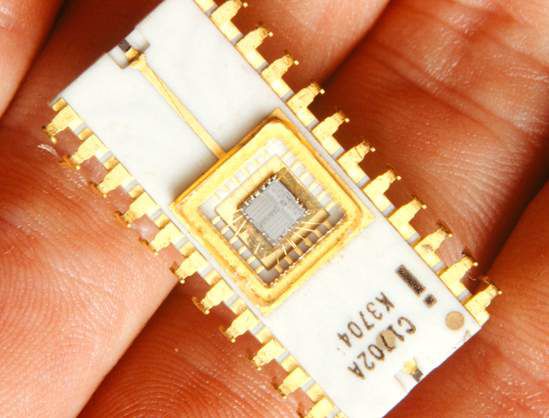Counterfeit chips a threat to military and public alike
Published 5:00 am Monday, September 20, 2010

- Two men from Newport Beach, Calif., have admitted to importing more than 13,000 counterfeit chips from China and selling them to buyers, including the U.S. Navy.
SAN JOSE, Calif. — A growing deluge of millions of counterfeit chips is posing peril to the military and the general public — and perhaps nothing illustrates it better than a scheme federal prosecutors recently revealed that stretched from Southern California to Silicon Valley.
Mustafa Aljaff and Neil Felahy, a Newport Beach pair indicted in October, have admitted importing from China more than 13,000 bogus chips altered to resemble those from legitimate companies, including Intel, Atmel, Altera and National Semiconductor. Among those buying the chips was the U.S. Navy.
It wasn’t the first time the military has been hoodwinked. Separate studies this year by the Commerce Department and the Government Accountability Office concluded that the armed forces are alarmingly vulnerable to fakes.
Commerce officials partly blamed the Iraq and Afghanistan wars for diminishing the supplies of chips the military normally uses for equipment repairs and forcing it to rely on questionable dealers for replacement parts. Moreover, both studies cited serious flaws in the Pentagon’s procedures for spotting sham components.
Close calls
Whether any of the fakes sold by Aljaff and Felahy went into vital defense systems isn’t clear. The Navy declined to comment, saying the case remains under investigation. But recent reports have described several close calls the military has had with bogus chips.
• Because the microprocessors it needed for its F-15 warplanes’ flight-control computer were no longer made by the chips’ original manufacturer, the military obtained them from a broker, only to discover they were counterfeit, according to the GAO’s study in March.
• That same month, Tobyhanna Army Depot in Pennsylvania discovered it had malfunctioning chips intended for use in military communications systems. “The counterfeit chips failed during testing” and weren’t put on any equipment, said depot spokesman Anthony Ricchiazzi.
• In November of last year, a Florida business that makes a device to keep injured pilots from becoming entangled in their parachutes reported finding a counterfeit chip in one of the devices and other fakes in its supply chain. None of the devices were known to have failed.
National security risk
But it’s not just the military that’s at risk. Chips perform key roles in countless commercial products, as well as phone links, banking networks, electronic grids and nuclear power plants. Given the flood of phony chips, said Diganta Das, a University of Maryland expert on the subject, “we can be assured that we have counterfeit parts in all kinds of systems.”
From November 2007 through May 2010, U.S. Customs officials said they seized 5.6 million bogus chips. Yet many more are finding their way into the U.S. and even the military, which federal officials consider especially worrisome because it could affect national security.
To withstand the rigors of battle, the Defense Department requires the chips it uses to have special features, such as the ability to operate at below freezing temperatures in high-flying planes. And because it pays extra for such chips, experts say, it has become a prime target for counterfeiters.
Counterfeiters — many of them based in China — often tear apart scrapped computers to obtain chips, which they then mislabel to appear suitable for jobs that exceed the parts’ capabilities. That can result in the components suffering dangerous glitches.






